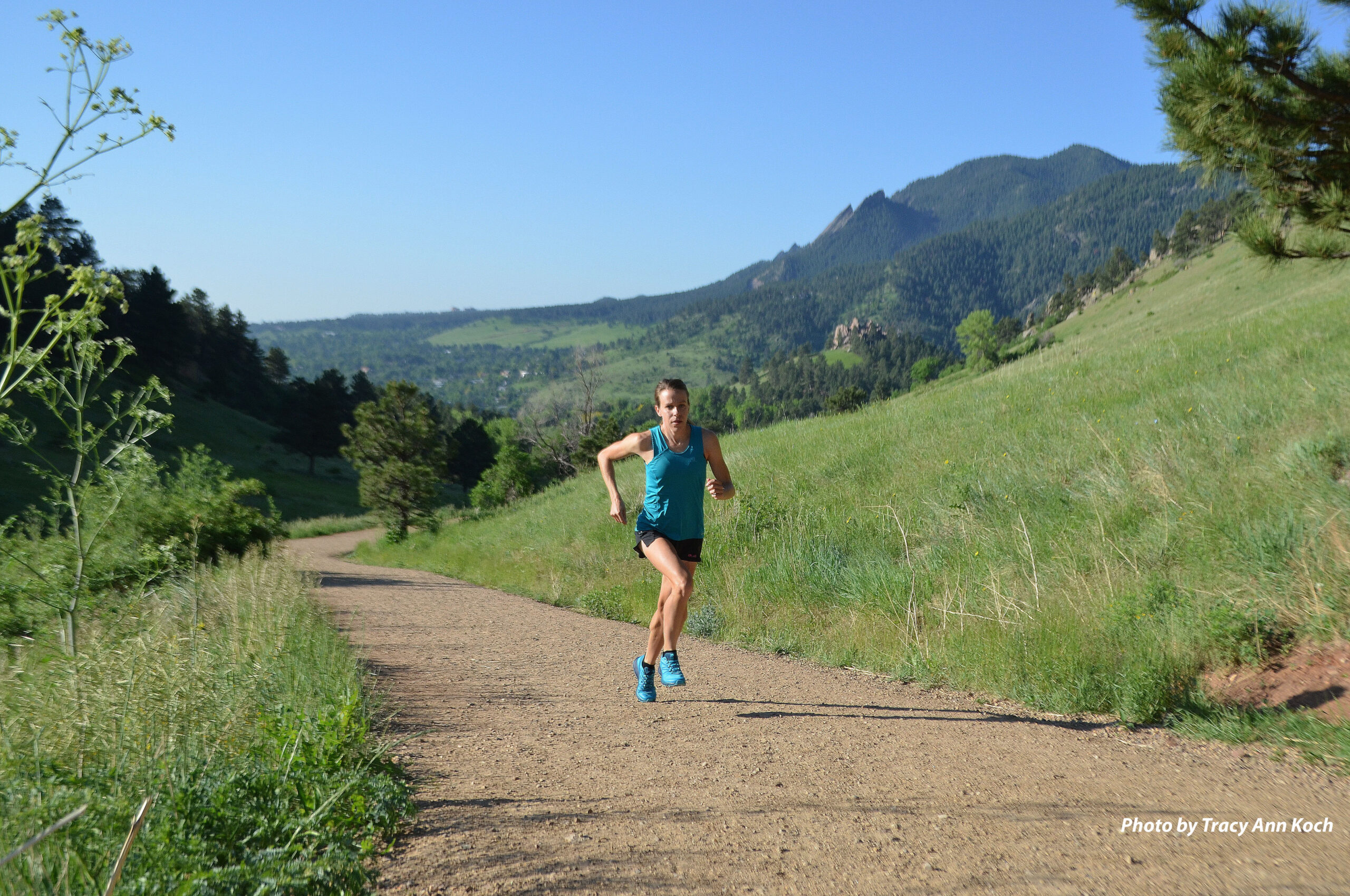Training While Fasting: Helpful or Harmful?
By Brooke Schohl, MS, RD, CSSD, METS Level II
You may have heard about the trend of approaching a training session while fasting to encourage the body to use fat more efficiently for fuel, but is this option right for you?
You want to have the most productive training session possible, feel energetic and ready to take on the world. Does this require you to fuel up before you head out? Or is it better to skip the pre-training meal entirely? Like many other aspects of fueling for your sport, the answer is highly individual.
When you consume a snack or meal before tackling that training session, the body will then use the food in the gastrointestinal (GI) tract to fuel the workout. With the absence of food in the GI tract, the body is forced to pull from its reserves – glycogen (storage carbohydrate) stores or fat stores. Since our glycogen stores are limited to two to three hours’ worth of energy, it is advantageous for athletes to train their bodies to use fat more efficiently as fuel. This is the concept/strategy of Metabolic Efficiency Training.
Here are some considerations for determining whether your next training session should be fuel-fed or not:
LENGTH OF TRAINING SESSION
This factor is perhaps the most important to consider. Workouts three hours or less in duration can be performed in a fasted state. Your body pulls energy from your internal stores. Fat reserves are used in lower intensity training; carbohydrate jumps into effect when intensity increases. The goal of Metabolic Efficiency Training is to encourage fat utilization whenever possible as these stores are prevalent. Note that fasted workout training is a progression, meaning that it must be slowly worked into over time if the body is used to a pre-workout calorie supply. If the workout duration is more than three hours, a pre-session snack or meal will be in order – something that provides the body with carb + fat + protein (i.e. plain, full-fat Greek yogurt with fruit and nuts).
INTENSITY OF TRAINING SESSION
The intensity of your training session determines the fuel source used – carbohydrate or fat. As intensity climbs, fat utilization plummets and carbs become key. Metabolic Efficiency Training involves fueling and exercise strategies designed to train the body to utilize fat more effectively at higher intensities. This being said, even a high intensity workout of two hours can be fueled by tapping into internal fat stores (remember the two-to-three hours worth of carbohydrate reserves in the body) rather than by placing the body in a fed state with calories. Over time, the goal is to activate fat burn to occur even at higher intensities, which improves endurance capacity as an athlete. If the high-intensity workout is more than two hours in length, a pre-session snack or meal may be in order – something that again provides the body with carb + fat + protein.
GI-SYSTEM RESPONSE
The decision to fuel or not before a workout can have a profound effect on the GI system for many athletes. When there is food in the stomach, high-intensity workouts may become more challenging – creating a feeling of fullness or sickness. For some, it is easier to complete shorter workouts fasted to avoid this feeling entirely. This is fine. Training the body to use internal fuel stores is beneficial. For those athletes who need to have something in the stomach before completing any training, this is fine too. I just recommend ensuring the pre-workout meal or snack is something metabolically efficient: again, carb + fat + protein.
Each of these considerations are important in determining whether to complete the workout in a fasted or fed state. Fasted workouts can be very helpful when used correctly. Seek the help of a Metabolic Efficiency Training Specialist (METS) like myself for further guidance in the area of fasted workouts.
Brooke Schohl, MS, RD, CSSD, METS Level II is a sports dietitian and the owner of Fuel to the Finish Endurance Nutrition Coaching in Scottsdale, Arizona. She is an avid triathlete, having completed many triathlons of all distances including three IRONMAN races. She integrates that personal experience and knowledge into developing customized, sport-specific, metabolically efficient fueling plans for her clients. Brooke and her husband, John, own Destination Kona Triathlon Store in south Scottsdale, Arizona. For more information on services and offerings, visit her website at www.fueltothefinish.com.


